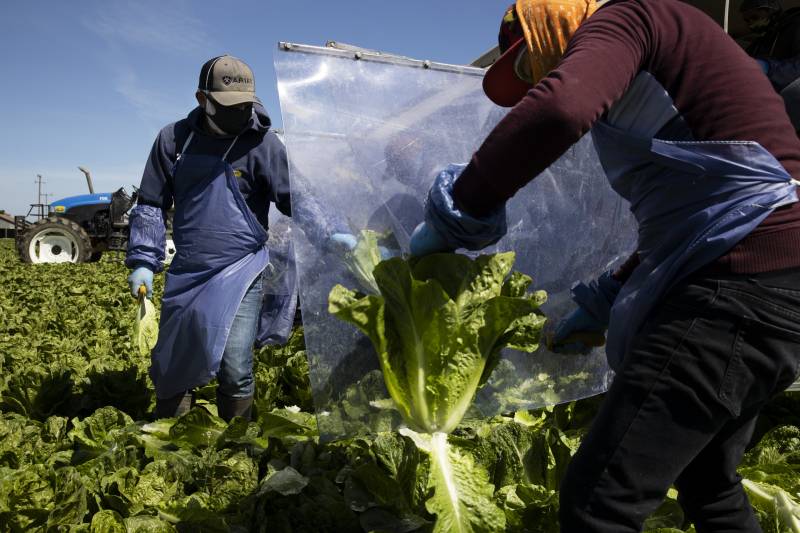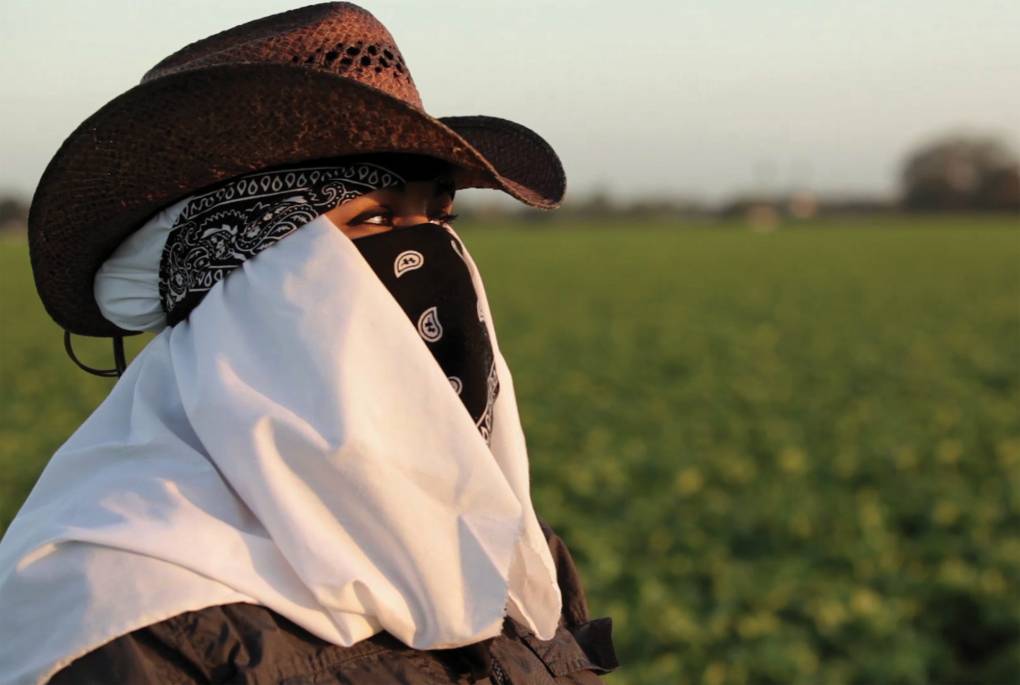California, which grows two-thirds of the nation’s fruits and nuts and one-third of its vegetables, has a higher share of unauthorized field workers than other states. The U.S. Department of Labor estimates 56% of the state’s farmworkers are undocumented immigrants, compared to just under half nationwide.
Nationwide, more than half of farmworkers lack health insurance, and nearly three in four earn less than $30,000 a year, according to the most recent National Agricultural Workers Survey report.
Now, these medically and economically vulnerable workers are at higher risk of contracting the virus because they must frequently work in close proximity to others in fields and packing houses, according to the poll’s researchers.
“They are literally putting their lives on the line to keep the food supply running,” said Alein Haro, a research fellow with UC Berkeley’s School of Public Health who helped analyze the survey results. “The least that we can do is make sure that these workers, if they do fall sick, can actually have the resources that they need to recuperate.”
Among poll respondents, 94% believe employers should allow farmworkers to maintain social distancing at work and provide them with personal protective equipment and hand washing stations. About 80% of voters also agree that employers should continue paying workers who get sick and must stay at home.
Poll respondents who disagreed with providing greater protections for farmworkers were more likely to live in rural areas, vote Republican and approve of President Trump’s handling of the pandemic.
A worker’s access to paid sick leave benefits usually depends on their employer and the laws of the state they live in. Since 2015, employers in California must provide at least three days of paid sick leave per year to full-time employees.


